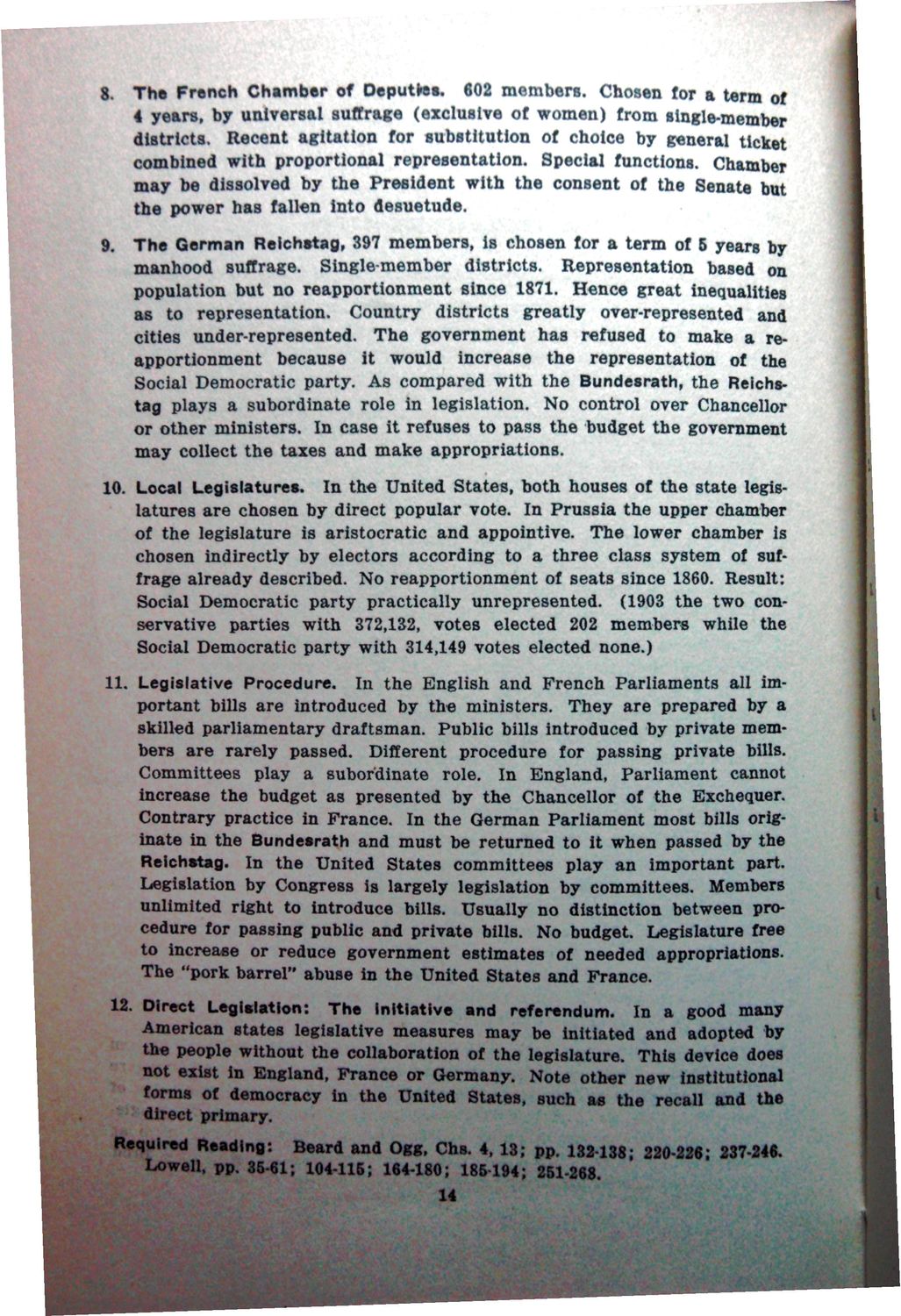| |
| |
Caption: War Publications - WWI Compilation 1923 - Article 48
This is a reduced-resolution page image for fast online browsing.

EXTRACTED TEXT FROM PAGE:
» 8. The French Chamber of Deputies. 602 members. Chosen for a term of 4 years, by universal suffrage (exclusive of women) from ilngle-member districts. Recent agitation for substitution of choice by general ticket combined with proportional representation. Special functions. Chamber may be dissolved by the President with the consent of the Senate but the power has fallen into desuetude. 9. The German Reichstag, 397 members, is chosen for a term of 5 years by manhood suffrage. Single-member districts. Representation based on population but no reapportionment since 1871. Hence great inequalities as to representation. Country districts greatly over-represented and cities under-represented. The government has refused to make a reapportionment because it would increase the representation of the Social Democratic party. As compared with the Bundesrath, the Reichstag plays a subordinate role in legislation. No control over Chancellor or other ministers. In case it refuses to pass the budget the government may collect the taxes and make appropriations. 10. Local Legislatures. In the United States, both houses of the state legislatures are chosen by direct popular vote. In Prussia the upper chamber of the legislature is aristocratic and appointive. The lower chamber is chosen indirectly by electors according to a three class system of suffrage already described. No reapportionment of seats since 1860. Result: Social Democratic party practically unrepresented. (1903 the two conservative parties with 372,132, votes elected 202 members while the Social Democratic party with 314,149 votes elected none.) 11. Legislative Procedure. In the English and French Parliaments all important bills are introduced by the ministers. They are prepared by a skilled parliamentary draftsman. Public bills introduced by private members are rarely passed. Different procedure for passing private bills. Committees play a subordinate role. In England, Parliament cannot increase the budget as presented by the Chancellor of the Exchequer. Contrary practice in France. In the German Parliament most bills originate in the Bundesrath and must be returned to it when passed by the Reichstag. In the United States committees play an important part. Legislation by Congress is largely legislation by committees. Members unlimited right to introduce bills. Usually no distinction between procedure for passing public and private bills. No budget. Legislature free to increase or reduce government estimates of needed appropriations. The "pork barrel" abuse in the United States and France. 12. Direct Legislation: The initiative and referendum. In a good many American states legislative measures may be initiated and adopted by the people without the collaboration of the legislature. This device does not exist in England, France or Germany. Note other new institutional forms of democracy in the United States, such as the recall and the direct primary. Required Reading: Beard and Ogg, Chs. 4, 13; pp. 132138; 220-226; 237-246. Lowell, pp. 3561; 104-115; 164-180; 185-194; 251-268. 14
| |